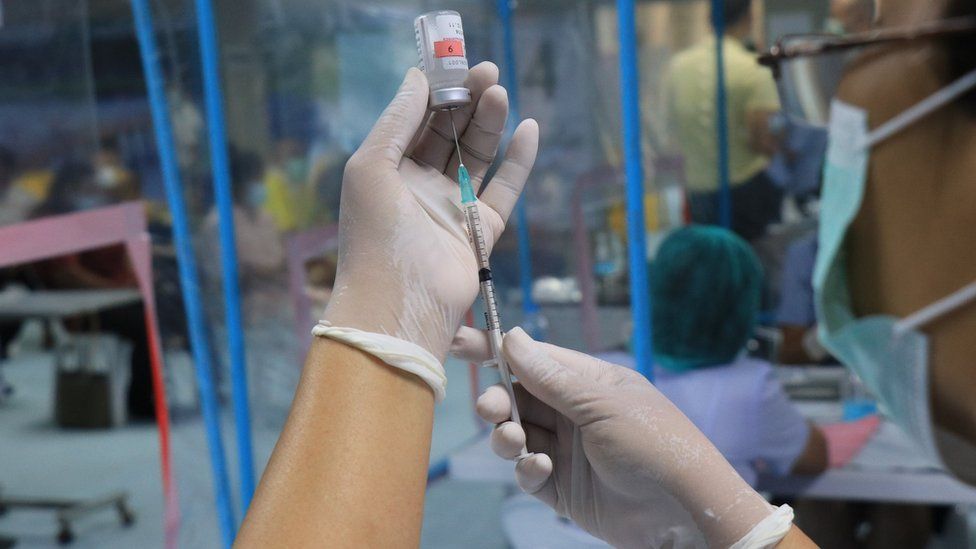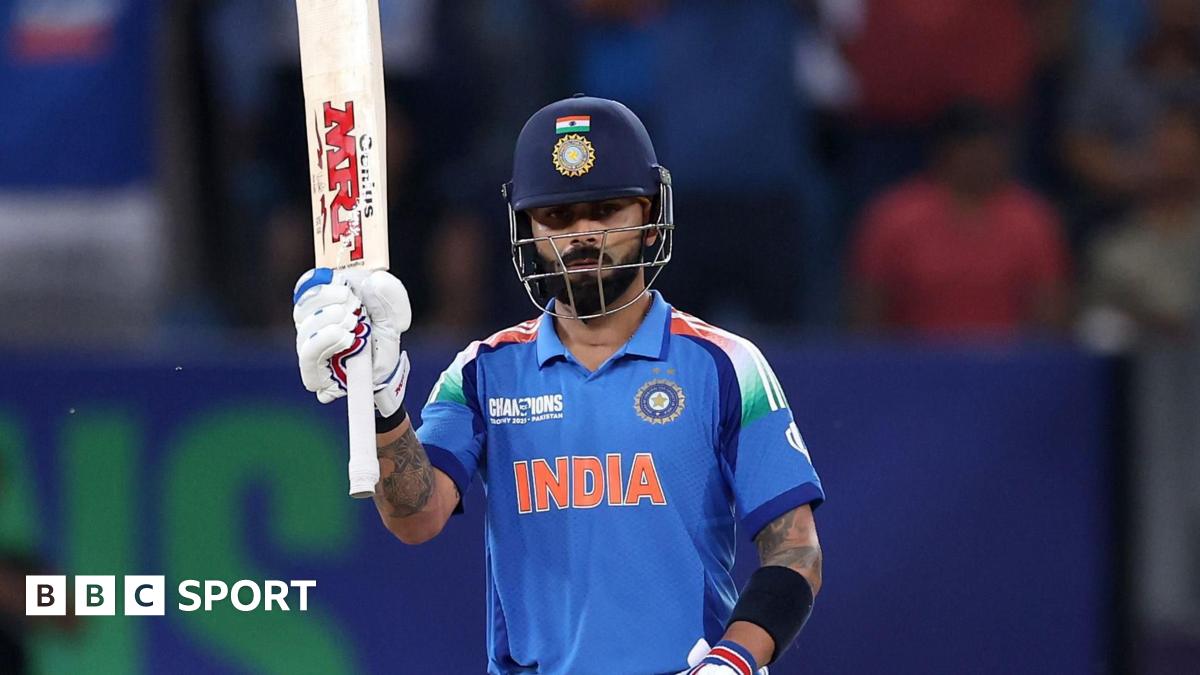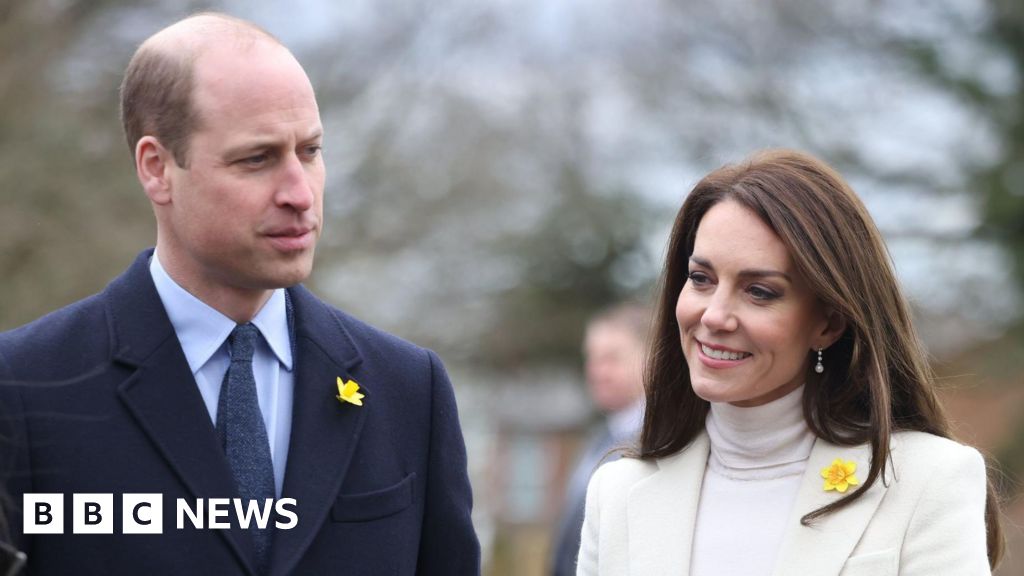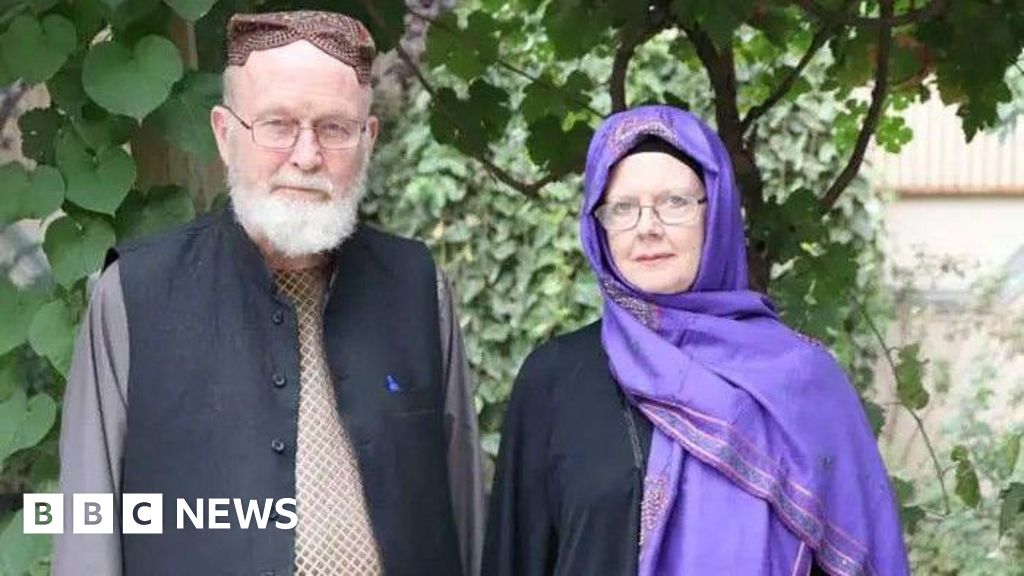 Image source, Getty Images
Image source, Getty Images
AstraZeneca said it was a commercial decision to withdraw the vaccine
By James Gallagher
Health and science correspondent
After more than three billion doses, the Oxford-AstraZeneca Covid vaccine is being withdrawn.
AstraZeneca said it was "incredibly proud" of the vaccine, but it had made a commercial decision.
It said the rise of new coronavirus variants meant demand had shifted to the newer updated vaccines.
Its vaccine was estimated to have saved millions of lives during the pandemic, but also caused rare, and sometimes, fatal blood clots.
In the race to lift the world out of pandemic lockdowns, the Covid vaccine was developed by scientists at the University of Oxford in record time. A process that normally takes 10 years was accelerated down to about 10 months.
In November 2020, it was heralded as "a vaccine for the world" as it was far cheaper and easier to store than other Covid vaccines. The pharmaceutical giant AstraZeneca had agreed to manufacture it on mass.
Initially, it was the cornerstone of the UK's plans to vaccinate our way out of lockdown.
"The truth is it made an enormous difference, it was what lifted us out of the catastrophe that was unfolding at the time, combined with the other vaccine from Pfizer," said Prof Adam Finn, from the University of Bristol.
However, its reputation was dented as unusual blood clots emerged as a rare side effect of the vaccine, and the UK turned to alternatives.
In a statement, AstraZeneca said: "According to independent estimates, over 6.5 million lives were saved in the first year of use alone.
"Our efforts have been recognised by governments around the world and are widely regarded as being a critical component of ending the global pandemic."
It said the development of new vaccines that more closely match the mutated forms of Covid that are now circulating meant there was a "surplus of available updated vaccines", leading to a "decline in demand" for its vaccine which is "no longer being manufactured or supplied".
Prof Finn added: "I think the withdrawal of the vaccine simply reflects it's no longer useful.
"It's turned out that this virus is very agile and it's evolved away from the original vaccines, so they have in a sense become irrelevant and only the reformulated vaccines are likely to be being used now."
Related Internet Links
The BBC is not responsible for the content of external sites.

 9 months ago
53
9 months ago
53









